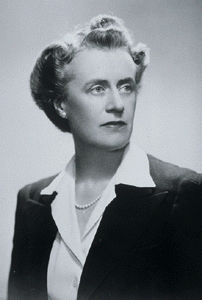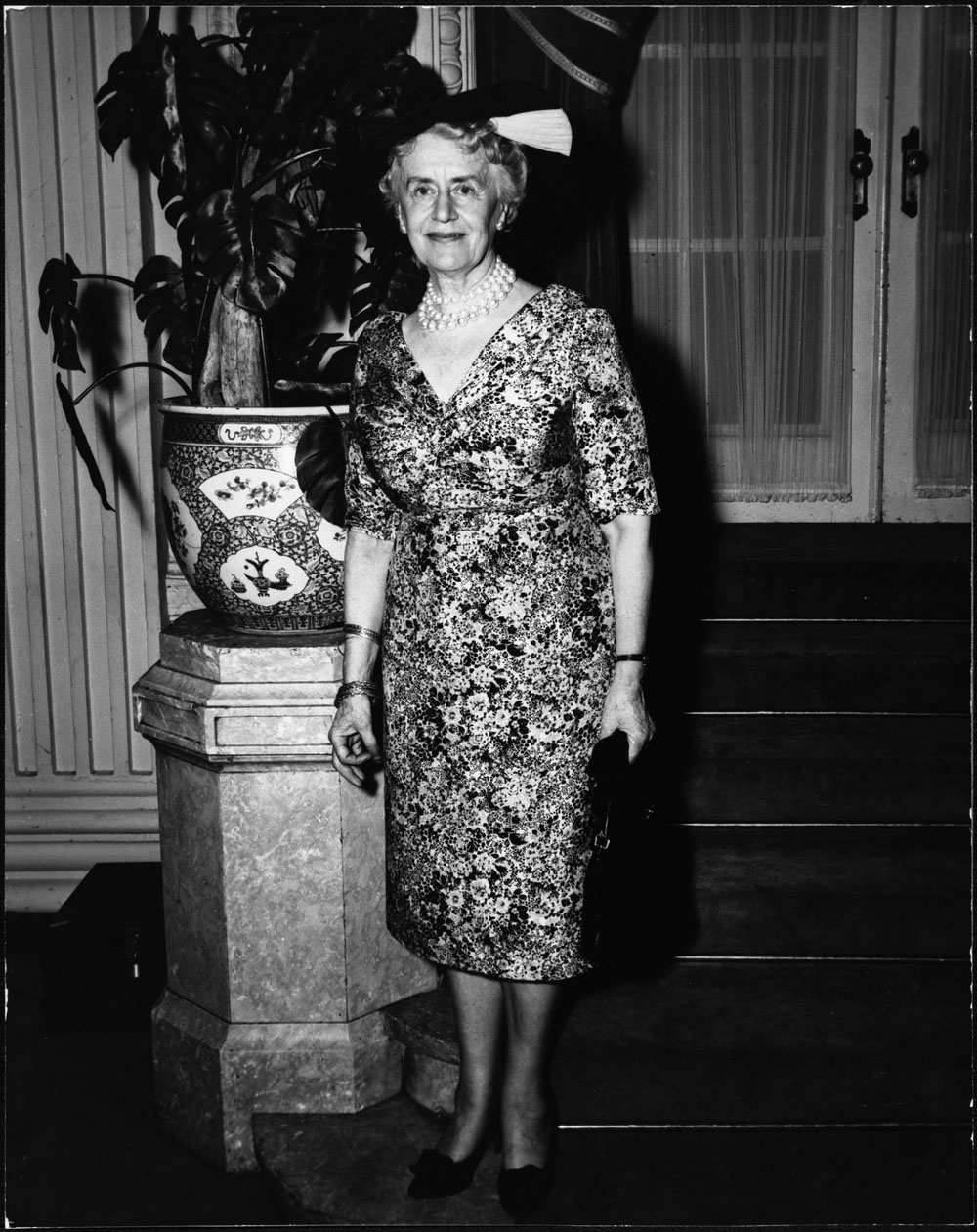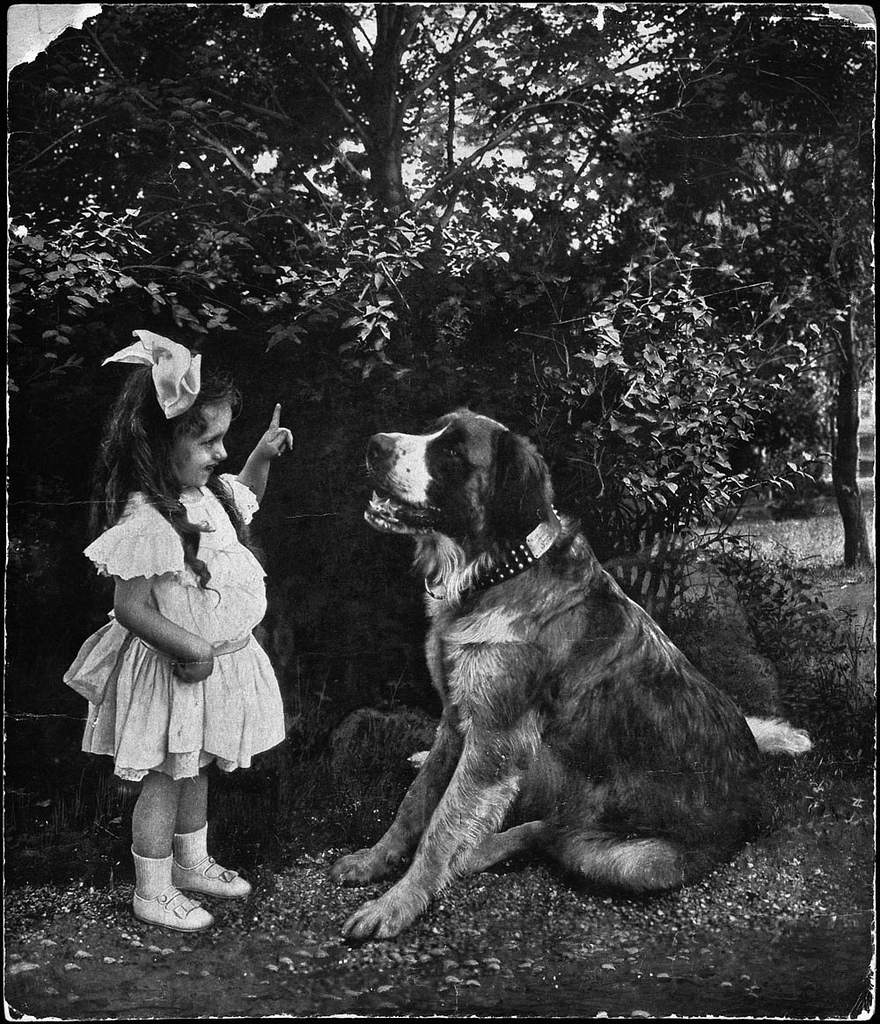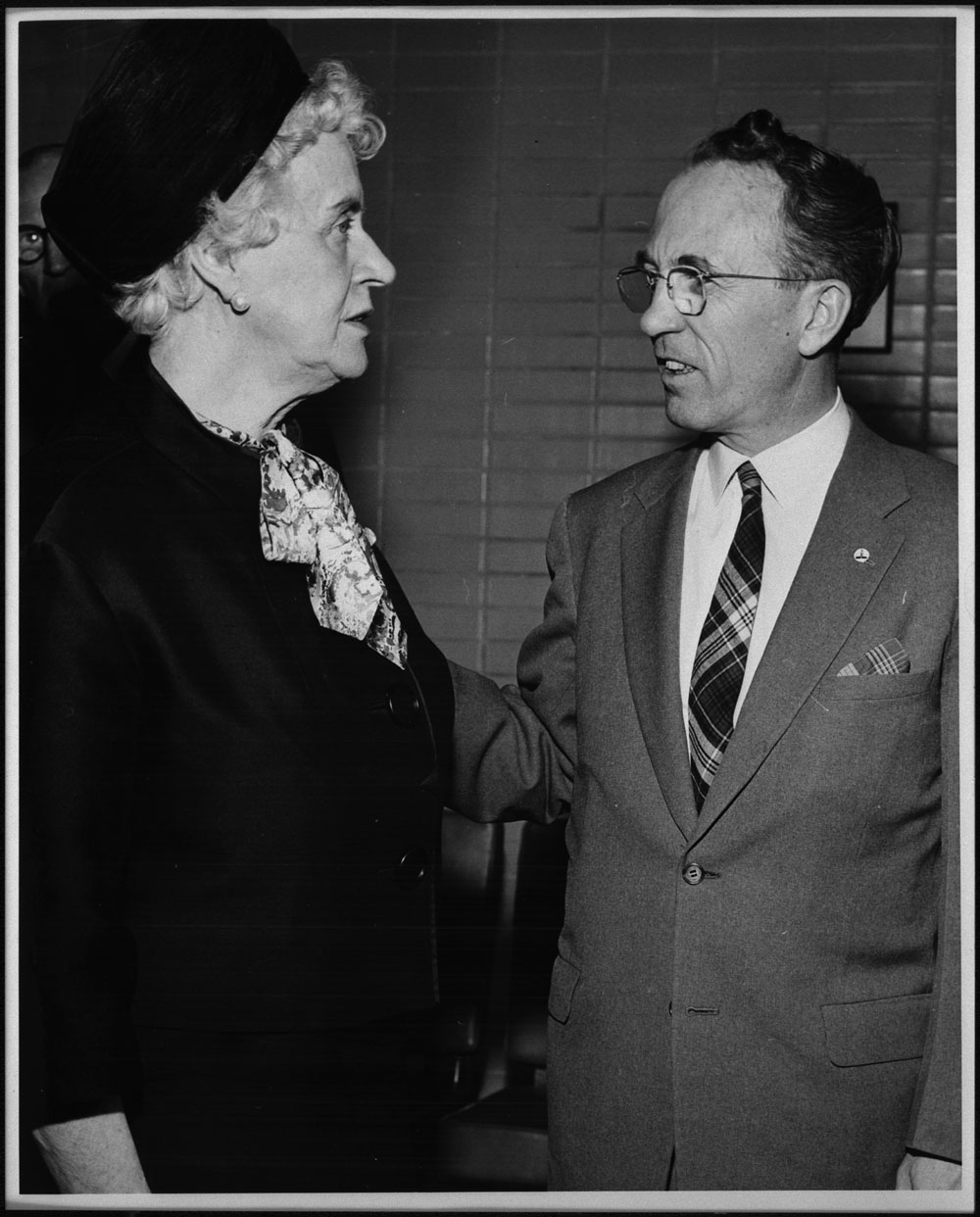Thérèse Casgrain, née Forget, CC, OBE, reformer, activist, feminist, politician (born 10 July 1896 in Montreal, QC; died 2 November 1981 in Montreal). Best remembered for leading the campaign for women's suffrage in Quebec, Thérèse Casgrain was the first woman to be elected the leader of a political party in Canada. She had a long political career and vigorously fought against social, economic and political injustices affecting both women and men.
Early Life
Born to a wealthy family, Thérèse Casgrain was the daughter of Sir Rodolphe Forget, a lawyer, financier and Conservative politician who was said to be one of the richest men in Montreal. In 1916, she married Pierre-François Casgrain, a lawyer and Liberal politician, with whom she raised four children.
A Committed Woman
A founding member of the Provincial Franchise Committee for women's suffrage in 1921, Casgrain campaigned ceaselessly for women's rights in Quebec. She headed the Ligue des droits de la femme for 14 years (1928–1942), which attained not only the right for women to vote at the provincial level, but also significant social and legal reforms. In 1940, the Quebec Liberals, led by Adélard Godbout, passed the women’s suffrage bill, and women obtained the right to vote in Quebec’s provincial elections.
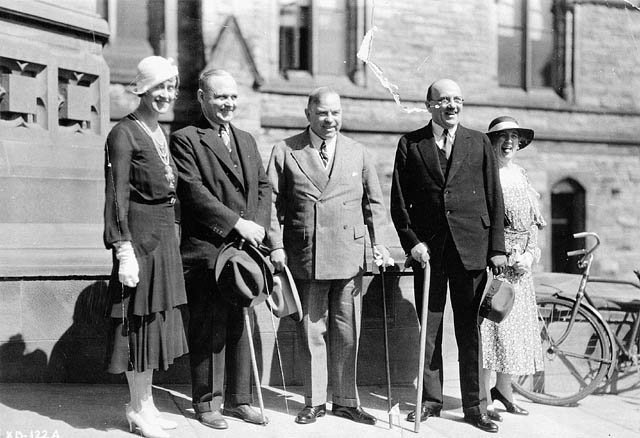
In the 1930s, Casgrain hosted Fémina, a popular Radio-Canada program. During the Second World War she was one of two presidents of the Women's Surveillance Committee for the Wartime Prices and Trade Board. In a 1942 federal by-election, Thérèse Casgrain was the Independent Liberal candidate in the Charlevoix–Saguenay riding, the seat held earlier by both her father and husband. She finished second. She ran for office six more times (in 1952, 1953, 1957, 1958, 1962 and 1963), but each time she was defeated.
In 1946, disillusioned with the Liberals, she joined the socialist Co-operative Commonwealth Federation (now the New Democratic Party). In 1948, she was chosen as the national vice-chair of the CCF, the only woman on its executive. From 1951 to 1957, she served as leader of the Quebec wing of the party (known from 1955 as the Parti social démocratique du Québec), making her the first woman in Canadian history to head a political party. She worked within the party, strengthening international socialist links.
In Quebec, along with intellectuals and union activists she helped mobilize opposition to Premier Maurice Duplessis. In 1961, she founded the Quebec branch of the Voice of Women (see also Women’s International League for Peace and Freedom) to protest the nuclear threat. She was a founder of the League for Human Rights (1960) and of the Fédération des femmes du Québec (1966). In 1969, she became the Quebec president of the Consumers’ Association of Canada, which successfully lobbied for the creation of a federal minister of consumer affairs. In 1970, at age 74, she was appointed to the Senate as an independent and served for nine months before reaching the mandatory retirement age of 75 in July 1971.
Legacy
Casgrain was a humanist who, in addition to her suffragist concerns, fought for universal rights and reforms in the areas of unemployment, health care, education and housing. Established in 1982, the Thérèse-F. Casgrain Foundation continues her mission “to favour the advancement of women in Canada and to support initiatives that allow them to change our society.” It supports projects in three distinct areas: the education, advancement and social economy of women.
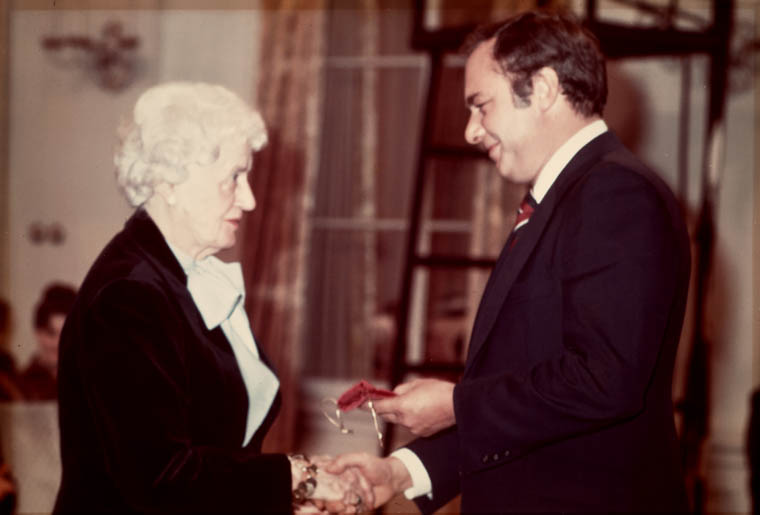
In 1982, the Canadian government under Pierre Trudeau instituted the Thérèse Casgrain Volunteer Award to recognize volunteers “whose social commitment and persistent efforts have contributed significantly to the well-being of their fellow Canadians.” The award was cancelled in 1990 by Brian Mulroney’s government, then reinstituted in 2001 by Jean Chrétien’s Liberals. In July 2014, the Canadian Press revealed that the award had been eliminated in 2010 and replaced the following year by the Prime Minister’s Volunteer Awards; the report prompted criticism of the Harper government’s position on women’s rights and its priorities regarding public history and heritage. In response, government spokespersons pointed out that information about Casgrain was included in Discover Canada, the citizenship study guide launched in 2009; they also explained that the volunteer awards program had been expanded and that two of the five new categories honoured the “spirit and objectives” of the Casgrain award. On 11 April 2016, Justin Trudeau’s government announced the reinstitution of the Thérèse Casgrain Volunteer Award.

On 17 April 1985, Canada Post issued a postage stamp in her honor. She and the members of the Famous Five were commemorated on the back of all $50 bills issued between 2004 and 2012. Concordia University annually awards the Thérèse Casgrain Medal to an outstanding student in the Women’s Studies undergraduate program.

In 1990, the Université du Québec à Montréal opened the Pavillon Thérèse-Casgrain, which houses the Departments of Sexology, Religious Studies, Philosophy and Law, as well as the School of Social Work.
In December 2012, a monument of Casgrain near the National Assembly was unveiled. Her statue stands next to those of Idola Saint-Jean, Marie Gérin-Lajoie (née Lacoste) and Marie-Claire Kirkland, all pioneers who fought for women's rights and improved their social and economic conditions.
The Quebec government designated Thérèse Casgrain a historic person in 2019 while the Canadian government designated her as a national historic person in 2022.
Awards
- Officer, Order of Canada (1967)
- Companion, Order of Canada (1974)
- Honorary Doctor of Law, LL.D., Université de Montréal (1968)
- Honorary Doctor of Law, LL.D., McGill (1974)
- Honorary Doctor of Law, LL.D., Queen's (1974)
- Honorary Doctor of Law, LL.D., Trent universities (1974)
- Honorary Doctor of Law, LL.D., University of Ottawa (1979)
- Honorary Doctor of Law, LL.D., York University (1979)
- Governor General’s Award in Commemoration of the Persons Case (1979)
- Honorary Doctor of Law, LL.D., Concordia University (1980)
- Academy of Great Montrealers, Board of Trade of Metropolitan Montreal (1980)
- Honorary Doctor of Law, LL.D., Windsor University (1981)
- Officer, Order of the British Empire

 Share on Facebook
Share on Facebook Share on X
Share on X Share by Email
Share by Email Share on Google Classroom
Share on Google Classroom

